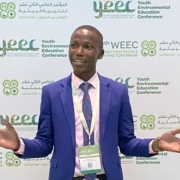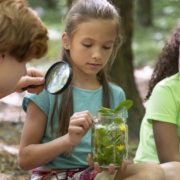The World EE Day 2022 at the University of Quebec
For the World EE Day 2022 the Centre for Research in Environmental Education and Training (Centr’ERE) of the University of Quebec in Montreal, organised a lecture programme, discussing topics of high relevance.
These days mark three symbolic dates whose meanings significantly influence the relationship with education, indigenous peoples and the environment.
On 5 October, for International Teachers’ Day, the Education – Environment – Eco-citizenship Coalition invited its members and the general public to participate in a meeting to update the proposed Quebec Strategy for Environmental Education and Eco-citizenship. The meeting was an invitation to explore the trajectory of this public policy proposal, from its origins, through a series of steps taken by the Coalition to date. We have also presented recent updates to the proposal, opening up a new collective assessment
The 12th of October, known as the Day of the Discovery of the Americas, is symbolically identified as Indigenous Resistance Day, commemorating the 530-year struggles of the First Peoples against colonisers. This event joined the movement for an engaged eco-citizenship, aimed at confronting the current wave of colonisation of territories by the extractive industry.
The seminar took place within the framework of Environmental Education Days 2022 and, more specifically, within the activities of the project Resistaction – Critical and political dimensions of environmental education in the context of socio-ecological conflict and their contribution to the emergence of alternatives, which examines these realities in Quebec and Chile.
Meanwhile, on 13th October, as part of the Environmental Education Days celebrations, Centr’ERE invited participants to a conversation about the place and role of critical pedagogies in this fundamental dimension of education.
In particular, critical pedagogies, associated with the thought of Paulo Freire, have been criticised for not making ecological issues explicit, whereas their potential and proven transformative and emancipatory power leads us to reflect on updating their role in environmental education and eco-citizenship. On the occasion of the Environmental Education Days, Centr’ERE invited participants to a conversation about the place and role of critical pedagogies in this fundamental dimension of education.
A Conference debates on political education in environmental and development issues, concluded the celebrations on 14 October.
This conference proposed to open the debate from a reading of the history of environmental and development education. It discussed the successive currents of environmental education, sustainable development and the Anthropocene era, with a view to highlighting the presence or absence of political education. The paper also pointed to a recent paradigm shift, following two decades of strongly behavioural education for sustainable development, towards education for the Anthropocene that offers more potential for political socialisation. This paper accompanied the publication of number 63 of the journal Éducation et socialisation on the subject, edited by Angela Barthes, Lucie Sauvé and Frédéric Torterat.




